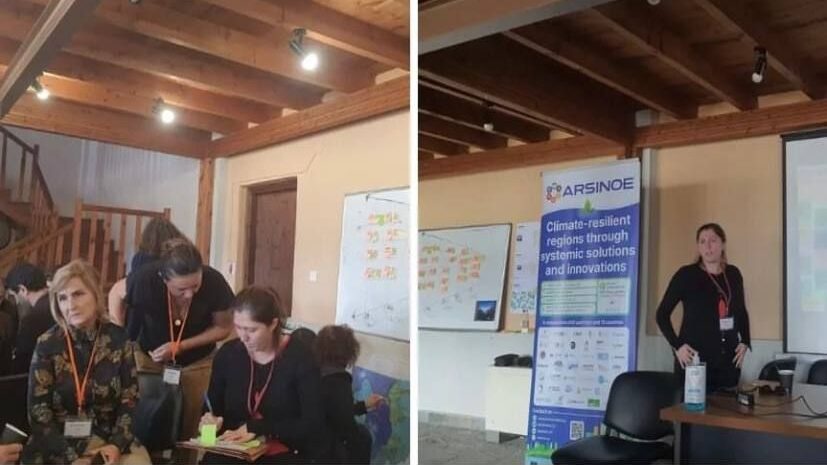In a significant step toward fostering regional cooperation and environmental stewardship, the third Living Lab Workshop of the ARSINOE project convened on November 2023 on the Albanian side of the renowned Ochrid/Prespa lakes. This pivotal event marked a cornerstone in the transboundary case study that bridges the efforts of North Macedonia, Albania, and Greece, aiming to address the environmental challenges and opportunities shared by these neighbouring countries.
The Ochrid/Prespa lakes region, a natural treasure shared by North Macedonia and Albania, with Greece’s participation highlighting the interconnectedness of environmental issues across borders, serves as a prime example of the need for collaborative conservation efforts. The ARSINOE project, through its series of Living Lab workshops, has embarked on a mission to not only understand but also integrate the unique perspectives, challenges, and opportunities that each country faces regarding these vital water bodies.
As the workshop series progresses, the focus gradually shifts from national to transboundary discussions, providing a platform for stakeholders from North Macedonia, Albania, and Greece to come together. This transition is crucial for fostering a shared understanding and crafting cohesive strategies that are not only sustainable but also mutually beneficial. The ultimate goal is to forge a unified vision for the conservation and sustainable management of the Ochrid/Prespa lakes, which are of immense ecological, cultural, and economic significance to the region.
The third Living Lab Workshop underscored the ARSINOE project’s commitment to leveraging collaborative efforts to tackle complex environmental challenges. By bringing together diverse stakeholders from three countries, the workshop facilitated a rich exchange of ideas and best practices, paving the way for innovative, cross-border solutions to emerge.
This initiative represents a hopeful stride toward enhanced regional cooperation, environmental conservation, and sustainable development in the Balkans, setting a precedent for how transboundary natural resources can be managed collaboratively and effectively for the benefit of all involved nations and the broader international community.

